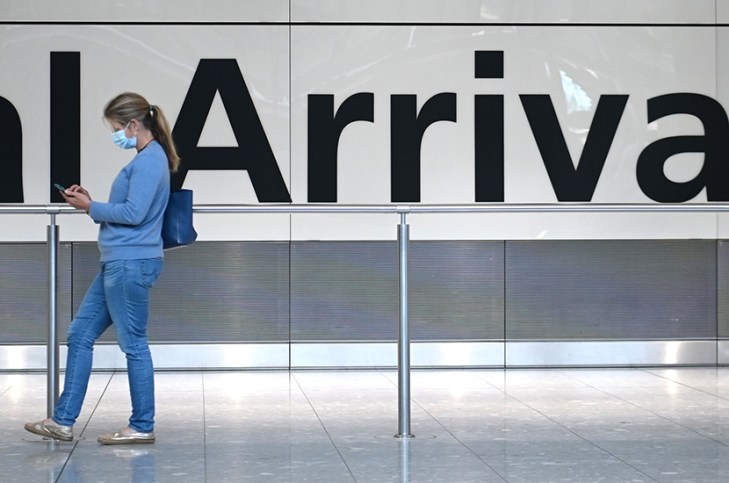We should take heart from BP’s £5.1 billion second-quarter loss, accompanied by a halving of its dividend. What’s good about that? Nothing — except that the loss reflects a write-down of the value of oil and gas assets that shifts the company to a more realistic footing for an extended period of low oil prices and reduced demand, indicating resilience rather than impending doom. In recent times, BP has lived through Deepwater Horizon, history’s most politicised oil-rig disaster, and extricated itself from TNK-BP, history’s nastiest Russian joint-venture. It operated when oil was below $20 a barrel in 2001 and when it hit $147 in 2008. It has plans to achieve net zero carbon by 2050. And it’s still paying half a dividend when many companies are paying none. It is, I suggest, a beacon of the survival instinct that will see most of big capitalism through this crisis.
Branson against the odds
I say ‘most of’ in that last sentence because I’m less confident for the airline sector, facing a catastrophic absence of passengers and scant hope of revival before 2023. But even here, deals are on the table. For IAG, parent of British Airways, one possible lifeline is a capital injection from Qatar — and it won’t surprise me if HM Treasury eventually steps in as a shareholder to underpin what’s still seen as the national flag-carrier. By contrast, Virgin Atlantic — owned by Sir Richard Branson and Delta Airlines of the US — can’t expect a taxpayer bailout, has warned that cash is running out, and filed for a form of bankruptcy in New York on Tuesday. But its wily founder is still working on a £1.2 billion rescue plan to renegotiate plane leases and debt as well as inject new equity. After 50 years in the capitalist game, Branson may yet beat even these impossible odds.
In praise of Amazon
One company that looks certain to survive and prosper is Amazon — which I’ve never been slow to criticise, ever since the day its PR police ejected me from the prototype Amazon Go no-checkout supermarket in Seattle. I was all ready to take another pop after I read of plans for 30 Amazon Go outlets in the UK — no doubt creating far fewer jobs than they destroy in cannibalised local shops — and news of record $5.2 billion quarterly profits. And I was secretly glad to read poor reviews of Amazon founder Jeff Bezos’s virtual testimony to a House subcommittee on anti-trust issues in Washington. ‘At times seeming flustered or unprepared, Bezos demurred, deflected and deferred questions,’ said one. But then I found another which called Bezos’s written submission to the hearing ‘a marvel of story-telling, which should be taught in business schools… as a defence of 21st-century capitalism in general and big tech in particular’.
Critical I may be, but I’m all for defending capitalism in general. So I commend Bezos’s paper, even if it’s rather too self-congratulatory. One passage speaks of 1.7 million small- and medium-sized third-party sellers who now account for 60 per cent of goods sold on Amazon, more than 200,000 of them surpassing $100,000 of sales last year, while the company’s soaring market value has generated $1 trillion for outside shareholders that include pension funds and university endowments. This monster of the digital age has created opportunity and reward for many who are not Bezos himself. Credit where credit’s due.
The Murdoch of money
I first knew former Tory treasurer and new peer Michael Spencer when he was a City up-and-comer in the mid-1980s. Our paths crossed in the Far East as well as London: he was fun, a bit dangerous and clearly going to make a fortune. When I was out of a job in the early 1990s, I heard he was looking for someone level-headed like me to work alongside him in his fast–expanding Intercapital (later Icap) money-broking empire. I tested that idea on a mutual acquaintance, whose response was: ‘Long spoon, Martin, long spoon.’
Spencer went on to bag a billion by selling Icap’s electronic trading arm to what used to be the Chicago Mercantile Exchange. Meanwhile, three Icap employees were charged but acquitted in the Libor scandal; Spencer himself was not implicated and has now collected the peerage the Cabinet Office reportedly vetoed when he was nominated by David Cameron in 2016. Should we be sniffy about another money-man in the Lords? I’d say not, so long as he’s willing to apply that shrewd brain to the business of government rather than just wafting the title as other ennobled donors do. As for the need for a long spoon, another market veteran tells me: ‘It’s like Kelvin MacKenzie said in last week’s Spectator about Murdoch’s ruthless drive: “Always rock’n’roll around Rupert.” Same with Spencer: he has his loyalists and detractors, but there’s no denying he built a world-class business.’
Book today
More than 72,000 restaurants have signed up to the Chancellor’s ‘eat out to help out’ voucher scheme, aimed at protecting 1.8 million jobs, so it would be invidious to tip just one of them; instead I urge you to book today at whichever local bistro or curry house you love best. But since I know you like names, I’ll mention Jean-Georges Philadelphia, on the 59th floor of the Four Seasons Hotel in the fine city that was the penultimate stop of my US East Coast tour in March, just ahead of the Covid tsunami. The chef-proprietor was Jean-Georges Vongerichten, the plat du jour was octopus, the maître d’ was assiduous, the view was breathtaking. My wise host and I truly felt masters of the universe. Virus panics come and go, we agreed, but this one will be over by the early summer. My host tells me that was the last time he ate out anywhere. Wisdom and prediction count for so little; we have no idea where this thing is going, or when. Eat out while you can.







Comments